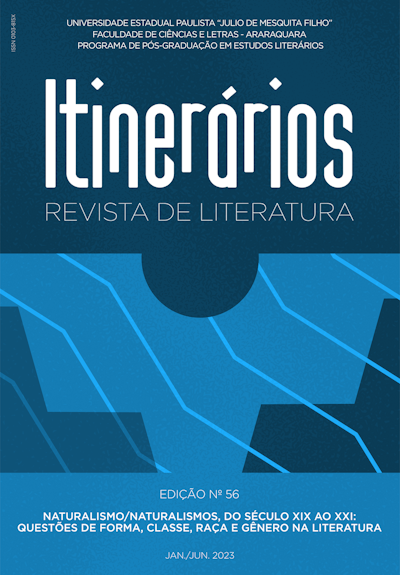Virgílio Várzea and Southern Naturalism
DOI:
https://doi.org/10.58943/irl.v1i56.18135Keywords:
Virgílio Várzea, Naturalism, Realism, Literary LifeAbstract
The paper studies the trajectory of the writer Virgílio Várzea (1863-1941) and his relationship with the naturalist aesthetics. It proposes that Várzea and his work represent a “Southern naturalism”, a naturalist strand with more description than narration, linked to the Goncourt brothers and to a conception of naturalist fiction as “painting of pictures”. In Santa Catarina, Várzea led an anti-romantic crusade supported by a broad spectrum of modern and scientific ideas that he called “naturalism”. There he published with Cruz e Souza the short story volume Tropos e fantasias (1885), marked by naturalist and evolutionist themes and ideas. When he migrated to Rio de Janeiro in 1890, he brought “Southern naturalism” to the cultural capital of the country, in the context of the post-imperial euphoria and the Old/New x North/South polemic, which he co-starred in with Oscar Rosas (1864-1921) and other Southern writers. The “Southern naturalism” was an alternative to the canonical “Northern naturalism” represented by Aluísio Azevedo (1857-1913) and Adolfo Caminha (1867-1897). Virgílio Várzea’s trajectory reveals that there were other conceptions of naturalism in circulation and competition in 19th century Brazil.
Downloads
Published
Issue
Section
License
Os manuscritos aceitos e publicados são de propriedade da revista Itinerários. É vedada a submissão integral ou parcial do manuscrito a qualquer outro periódico. A responsabilidade do conteúdo dos artigos é exclusiva dos autores. É vedada a tradução para outro idioma sem a autorização escrita do Editor ouvida a Comissão Editorial.

